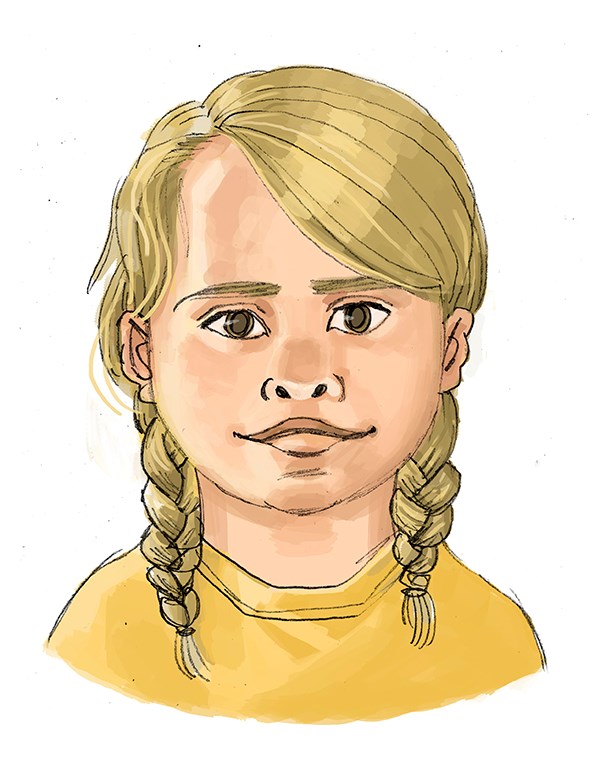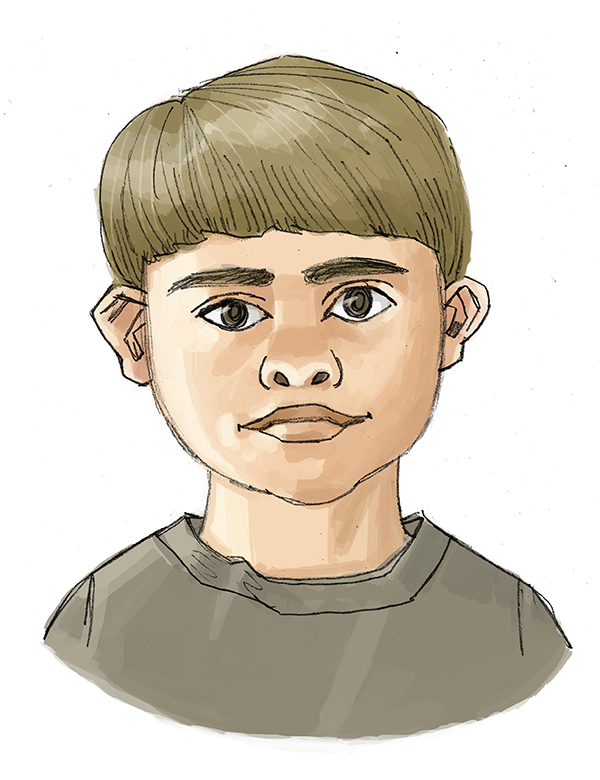Smith-Magenis syndrome
Codes
ICD-10: Q87.8
ORPHA: 819
General information
Estimated occurrence
5:100,000 live births.Cause
Lack of chromosome segment (deletion) on chromosome 17 or change (mutation) in the RAI1 gene (retinoic acid-induced gene 1).General symptoms
Suckling difficulties and slow weight gain is common in infancy. Muscle weakness and low sensitivity to pain is often present, and most sufferers have a mild or moderate developmental disability. The children are short, but many still reach a normal final height. Many develop scoliosis at an early stage, and the arch of the foot can be flattened or too high. A wide gait is typical for the diagnosis. Sleep disturbances with short sleep cycles are a big problem. Self-harming behaviour, difficulties adapting and habitual actions can be present, as well as hyperactivity and sudden mood swings. Many of the body’s organs, such as the heart, kidneys, urinary tracts, thyroid gland, stomach and intestinal canal, eyes and ears can be affected. Epilepsy occurs.Images
Characteristic facial features in Smith-Magenis syndrome:
Square face. Prominent forehead. Small midface. Close eyes.


Orofacial/odontological symptoms
Characteristic facial features are associated with the diagnosis. Reduced palate function (velopharyngeal insufficiency) is common, and can lead to difficulties sucking and swallowing and hyper-nasal speech. Many have a hoarse voice, caused by a divergence in the larynx, for example goose bumps on the vocal cords or vocal cord paralysis. Oral motor function impairments in the shape of muscle weakness and reduced mobility can affect speech and eating development and cause drooling. Some have biting habits. Dental genes may be missing, crown and/or root divergence can be prevalent, and some have divergent bites. Risk factors for oral health are difficulties working for oral/dental care, difficulties eating, as well as reduced own ability to clean the mouth after a meal due to oral motor limitations.Advice on follow-up and treatment
- It is important for people with Smith-Magenis syndrome to have contact with dental care early on for strengthened preventive care and oral health information.
- Tooth and bite development is to be monitored. In case of divergence, an orthodontist is to be consulted at an early stage to plan any orthodontic treatment.
- Contact with a physician when giving dental treatment to people with medical conditions such as heart defects is recommended.
- Oral motor training and stimulation is often urgently needed in cases with eating difficulties, speech difficulties and drooling.
- Speech, language and communication difficulties are evaluated and treated by a speech therapist.
Sources
Updated: 2019-11-12 14:59






